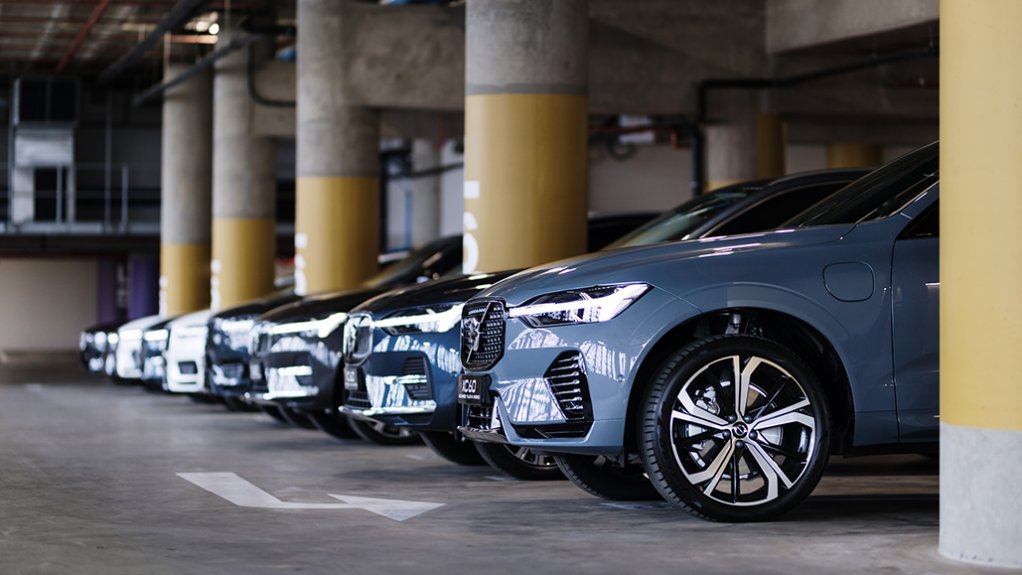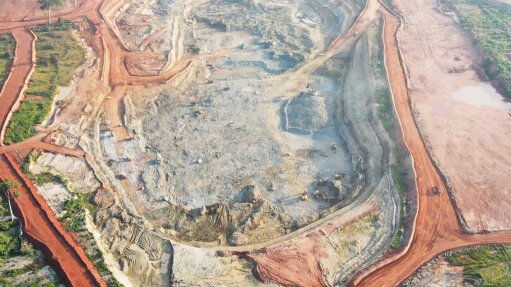Electric vehicles can have a lower TCO than ICE vehicles
Electric vehicles (EVs) can have a lower total cost of ownership (TCO) for consumers than internal combustion engine (ICE) vehicles, but vehicle financing options and automotive manufacturers' business models must change to accommodate the differences in retail and maintenance costs between the technologies.
New-energy vehicles (NEVs) are much more expensive than ICE vehicles and commercial banks and financing houses in general have an important role to play in addressing the capital expenditure requirements of NEVs to support the transition, financial services firm Absa Commercial Asset Finance head Thandi Kabini said during the South African Auto Week hosted by naamsa | The Automotive Business Council, which was held this week.
"These high upfront costs would increase clients' debt levels and skew their ratios. This calls for us to look at NEVs differently. We must step up our leasing product solutions, as there is demand for leasing without worrying about TCO and as a way for businesses to manage their cash flows."
However, as the financial industry designed product solutions for the NEV market, it must also factor in that the economic life of NEVs was longer than ICE vehicles and must therefore structure solutions that took that into consideration, she added.
Further, banks could consider the positive impact of clients transitioning to NEVs and the contribution to global climate goals when assessing clients' credit and affordability ratios, she said.
However, there were lots of opportunities for South Africa in the transition to NEVs. The automotive and banking sector could work together to look at EVs as a future mobility technology solution that could also reduce the costs of ownership for consumers, said Mercedes Benz Cars South Africa co-CEO and marketing and sales executive director Mark Raine.
"We know where the fuel price is currently, but the costs incurred to provide the energy for electric vehicles to move can be reduced by 70% compared to fuel costs and, especially with the rate of adoption of solar in South Africa, it is a huge opportunity," he said.
With a few tweaks to financing and insurance policies, NEVs can be more viable propositions for private consumers.
The banking, solar and automotive industry should form close ties and look at how they could create an ecosystem that worked, he noted.
The concerns of consumers had restrained the transition so far, including whether the country was ready for battery electric vehicles (BEVs) and whether it was viable to introduce them during times of loadshedding, despite distributed BEVs that can store energy potentially being part of the solution, he added.
"The world is moving in this direction, whether South Africa is ready or not, but NEVs can help to create new jobs and have the potential to generate more export revenue for the country," said Raine.
Additionally, there will be a need for a holistic upskilling across the BEV value chain, including of dealerships, aftermarket services and workshops.
Further, first-responders have to be trained on the new dangers presented by BEVs and how they should attend to such incidents, he highlighted.
MINING & NEVs
The mining industry should collaborate with other industrial sectors to support the transition to NEVs, as South Africa was well endowed with many of the minerals that would power the transition to NEVs, said diversified miner Africa Rainbow Minerals (ARM) business development executive Sihle Mdluli.
"Specifically on the BEV side, we have manganese, nickel, iron and, through our platinum group metal (PGM) operations, cobalt. Therefore, as an industry we believe the potential is not only on the BEV side but also on the hydrogen side, through the use of PGMs, including ruthenium and iridium to power green hydrogen fuel cells," she highlighted.
"It is high time we turned a so-called sunset industry into a sunrise industry playing a meaningful role in the value chain," she emphasised.
ARM has significant PGM and manganese assets and has done research and development over several years to enable it to be a meaningful participant in the value chain of EVs.
"We think that small, medium-sized and microenterprises' participation and driving shareholder value are key benefits of the transition to NEVs and can positively contribute to the country's decarbonisation goals.
"We think that, as South Africa, we will not only be able to locally manufacture EVs but can also play a meaningful part in the global transition," she said.
However, a big hurdle was the amount of green energy available in South Africa and, despite it being a nascent industry, the reluctance to fund investments into this space required a new approach by financial institutions, said Mdluli.
Additionally, many of South Africa's neighbours are also well endowed with minerals used for EVs, including lithium in Zimbabwe, nickel in Botswana and graphite in Madagascar.
This presents a great opportunity for regional collaboration, and the Africa Continental Free Trade Area can also enable this.
"As industries and as the mining sector, we must look at where in the value chain countries in Southern Africa will be strong, including in mineral refinement, battery cell manufacturing and battery pack assembly. As a region, we must identify the areas in which we can play a role," she said.
The NEV and battery value chains touched many parts of industry and could have a big impact on the whole of society in many different aspects, said Department of Trade, Industry and Competition and Industrial Development Corporation (IDC) special adviser Riaz Haffejee.
"However, the reasons leading battery companies give us on why they have not started operations in the country is because there is little to no supply chain for battery components in the industry," he highlighted.
Therefore, a battery cell manufacturing facility would have to import many of the battery components and then export them in vehicles.
"South Africa should play to its strengths, and it can mine and refine the minerals. The IDC has launched nickel, manganese and other battery metals pilot projects to see whether we can refine it to the point where we can supply it as batter-grade materials," Haffejee said.
The missing element is that the country will also have to make investments into producing battery components from its minerals, such as from manganese sulphate and nickel sulphate.
Further, other minerals and components, such as graphite from Tanzania and Madagascar for anodes, could be brought into the country through regional supply chains, he added.
"Once we have developed the supply chain in South Africa, not only will it serve as a structural strength for the next decade, but also strengthen Southern Africa. A key first step is to determine the most immediate opportunity to strengthen the battery assembly process so that we can start to develop the skills that will allow us to move in this direction," he highlighted.
Additionally, the energy storage market also presents opportunities. By 2025, there will be an estimated 100 000 plug-in power battery packs needed in the country, and this could prompt original equipment manufacturers (OEMs) to consider the business case of local manufacturing.
South Africa should do research and development around battery energy storage systems and then develop the skills required by OEMs when the volumes made the establishment of local manufacturing feasible, he noted.
However, the component industry was dependent on the automotive industry introducing more electrified powertrains, and these were largely dependent on the volumes of NEV manufacturing in the country, Haffejee highlighted.
"As the volumes of NEVs increase, the better the opportunity that the business case makes sense for certain local components and the greater the likelihood of making more components. We are at the point that, in the next year or two, we will see significant components coming through the value chain," he emphasised.
One of the most important things the automotive industry hoped for from the Medium-Term Budget speech on November 1 was a clear NEV policy that the industry could work on and policies across the value chain to stimulate demand for NEVs, emphasised Raine.
"The important thing is to stimulate demand. We need a policy for strong local market covering the entire South African market from luxury brands to volume brands so that each South African feels able to tap into the new technology and derive benefits," he said.
"The transition to NEVs presents not a threat, but a chance, and we can learn from what worked and what did not in other markets and immediately implement a policy to stimulate the market," he added.
VW Group South Africa would need to produce about 60 000 BEVs a year in South Africa to make it feasible for the company and suppliers to localise components, and Mercedes Benz may need to produce a further 40 000 electric vehicles a year in the country to make local battery manufacturing feasible, said VW Group South Africa chairperson and MD Martina Biene.
"As VW, we are looking at BEV manufacturing by the middle of the next decade and this is why we are pushing so strongly for a policy and we need to get increasing demand for BEVs going.
"We need to make a decent amount of BEVs in the country to make it feasible for us, as this is the biggest lever to bring costs down," she said.
"It is urgent for South Africa's automotive industry that the government pronounce on its intentions around the supply and demand of NEVs as soon as possible. This is important in terms of the timing of investment decisions and planning and product development cycles.
"For us, we are already five years down the line in terms of planning and it is very urgent that South Africa announces its NEV policy," she emphasised.
Comments
Announcements
What's On
Subscribe to improve your user experience...
Option 1 (equivalent of R125 a month):
Receive a weekly copy of Creamer Media's Engineering News & Mining Weekly magazine
(print copy for those in South Africa and e-magazine for those outside of South Africa)
Receive daily email newsletters
Access to full search results
Access archive of magazine back copies
Access to Projects in Progress
Access to ONE Research Report of your choice in PDF format
Option 2 (equivalent of R375 a month):
All benefits from Option 1
PLUS
Access to Creamer Media's Research Channel Africa for ALL Research Reports, in PDF format, on various industrial and mining sectors
including Electricity; Water; Energy Transition; Hydrogen; Roads, Rail and Ports; Coal; Gold; Platinum; Battery Metals; etc.
Already a subscriber?
Forgotten your password?
Receive weekly copy of Creamer Media's Engineering News & Mining Weekly magazine (print copy for those in South Africa and e-magazine for those outside of South Africa)
➕
Recieve daily email newsletters
➕
Access to full search results
➕
Access archive of magazine back copies
➕
Access to Projects in Progress
➕
Access to ONE Research Report of your choice in PDF format
RESEARCH CHANNEL AFRICA
R4500 (equivalent of R375 a month)
SUBSCRIBEAll benefits from Option 1
➕
Access to Creamer Media's Research Channel Africa for ALL Research Reports on various industrial and mining sectors, in PDF format, including on:
Electricity
➕
Water
➕
Energy Transition
➕
Hydrogen
➕
Roads, Rail and Ports
➕
Coal
➕
Gold
➕
Platinum
➕
Battery Metals
➕
etc.
Receive all benefits from Option 1 or Option 2 delivered to numerous people at your company
➕
Multiple User names and Passwords for simultaneous log-ins
➕
Intranet integration access to all in your organisation





















